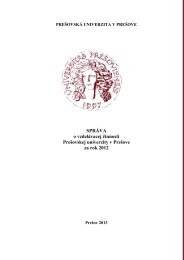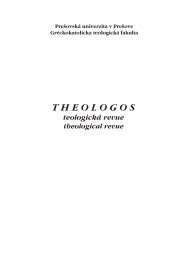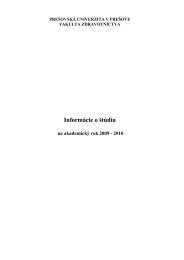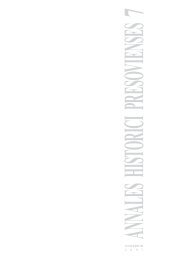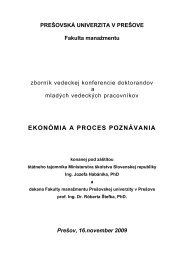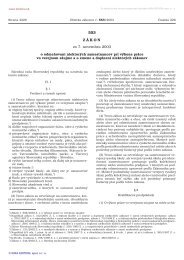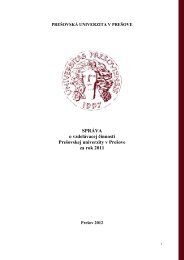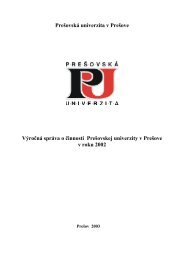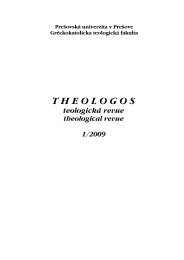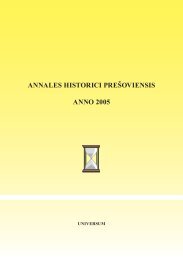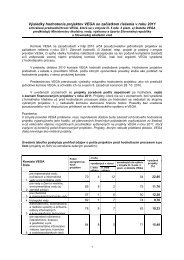T H E O L O G O S - Prešovská univerzita v Prešove
T H E O L O G O S - Prešovská univerzita v Prešove
T H E O L O G O S - Prešovská univerzita v Prešove
Create successful ePaper yourself
Turn your PDF publications into a flip-book with our unique Google optimized e-Paper software.
Bożena Drzewicka<br />
The ASEAN members differ significantly in every respect, more than<br />
the EU nations. As the integration suggested cannot be limited to material<br />
categories, a stress is laid on threats and inequalities, which could not be<br />
overcome by any modern economic system. Debates focused on civilizations<br />
and cultures are, in fact, critiques of the economic transformation,<br />
both in underdeveloped and in highly developed market economies. A<br />
ride effect of the present-day development is the growing share of negative<br />
tendencies within the societies, cultures and political structures. Such<br />
tendencies are reflected in international processes as well as in new concepts<br />
or interpretation of global phenomena. 32<br />
For many year, this has been pointed out by J. Galtung, who claims<br />
that the large accompanying costs should be taken into consideration<br />
whenever the contemporary development is discussed. He alludes<br />
to disregard of the humanistic aspect in individuals, respect of the social<br />
aspect in interactions between people, both in an individual and international<br />
dimension, as well as to disregard of the cultural aspect. 33 Therefore<br />
one can still ask what the global development and the modernization<br />
should be like. Both the former and the latter have become objects of<br />
different typologies, which seem simplified and controversial. In my opinion,<br />
the lacking clarity is, on the one hand, a cause of confontations and,<br />
on the other hand, a prompt to search for the best conceptions as well as<br />
for a practical model of international relations. The two parties included<br />
appear now to be fully aware of this situation. A dialogue, a co-operation<br />
and a humanistic development are, therefore, absolutely necessary.<br />
“Dialogue” is understood here as social acceptance of communication. In<br />
an international dimension, an additional result to be expected is a fairer<br />
income distribution among the rich and the poor countries, with their<br />
co-operation and a supported adoption of market economy as simultaneous<br />
processes. This means that a complementary development must<br />
be provided for. 34<br />
Many a circle of intellectuals and politicians participated in the early<br />
debates focused on the issues discussed here. Object of interest were<br />
political and legal forecast, concerning the present-day and future relations<br />
between civilizations. In fact, three best-known and fashionable<br />
political prognoses were taken into consideration. The “end of history”,<br />
32<br />
J. Kukułka, Polityka zagraniczna jako element procesu oddziaływań międzynarodowych,<br />
In: J. Kukułka (ed.), Zmienność i instytucjonalizacja stosunków międzynarodowych,<br />
Warszawa 1988, p. 148-151.<br />
33<br />
J. Galtung, Peace by Peaceful Means. Peace and Conflict. Development and Civilization,<br />
Oslo 1998, p. 129.<br />
34<br />
Agenda 21: Programme of Action for Sustainable Development, United Nations, New<br />
York 1993.<br />
34



